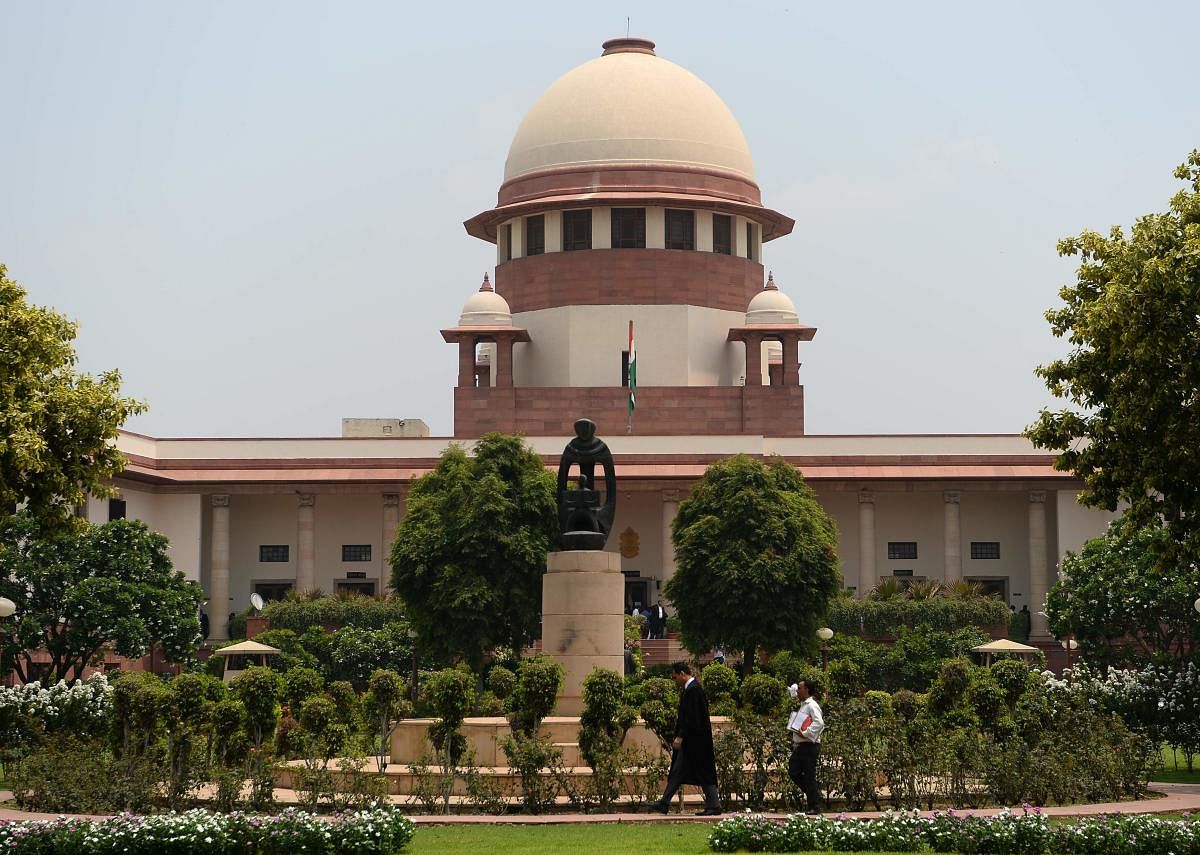
The Supreme Court on Thursday gave a go-ahead for the prosecution of the head of the municipal bodies of Bengaluru for allowing continuous discharge of the untreated sewage into the water bodies like ponds, lakes, natural valleys, in violation of the statutory provisions.
A bench of Justices Ashok Bhushan and M R Shah declared that offences by body corporate like City Municipal Council were covered under the Water (Prevention and Control of Pollution) Act, 1974, and can be treated to be offence by a company and held that municipalities can be treated as a body corporate and be liable for prosecution for polluting natural resources.
“We are of the opinion that Section 47 (in charge of a company) can be resorted to for offences by body corporate and Karnataka State Pollution Control Board by filing a complaint before the Magistrate for taking cognizance of offence did not commit an error,” the court said.
The top court set aside the Karnataka High Court's order of February 16, 2015 which had quashed the proceedings initiated against B Heera Naik, then working as the Commissioner, City Municipal Council, Krishnarajapuram, Bangalore, and his predecessors M A Baig and D L Narayan and others, on a complaint filed by the Karnataka State Pollution Control Board.
“We are of the view that the HC erred in quashing the complaint,” the bench said in its judgement on a criminal appeal by the pollution control board. None of the officers was represented in the court, despite having been served notice.
The Board had accorded consent to the accused persons, municipal bodies head, to discharge sewage effluent after treatment. This consent had expired on June 30, 2006. The accused officers, who had assured to set up Sewage Treatment Plant within six months, failed to do so, nor did they take any step on it. They continued to discharge the untreated sewage into the water bodies, in contravention of the provisions of the Water (Prevention and Control of Pollution) Act, 1974.
The HC, however, had quashed the proceedings, saying Commissioner of Municipal Council, Chief Officer or Council cannot be termed as Head of the Department and they cannot be prosecuted under Section 48 of the Act, 1974.
Assailing the HC's order, the pollution control board contended that the municipal corporation and the municipalities, which violated the provisions of law, could be prosecuted.
“The Commissioner of the Municipal Corporation, the Municipal Council and the Chief Officers of the Municipal Council are Chief Executive Officers of the respective Corporation and Council and they being Head of the Department, being of the Corporation or the Council, are liable to be prosecuted with,” it contended.
Referring to provisions of the Karnataka Municipalities Act, 1964 and the Water Act, 1974, the top court said those made it clear that City Municipal Council cannot be treated as a department of the state government but as a body corporate. The Constitution also envisaged municipality as a body of self-Government, it said.
